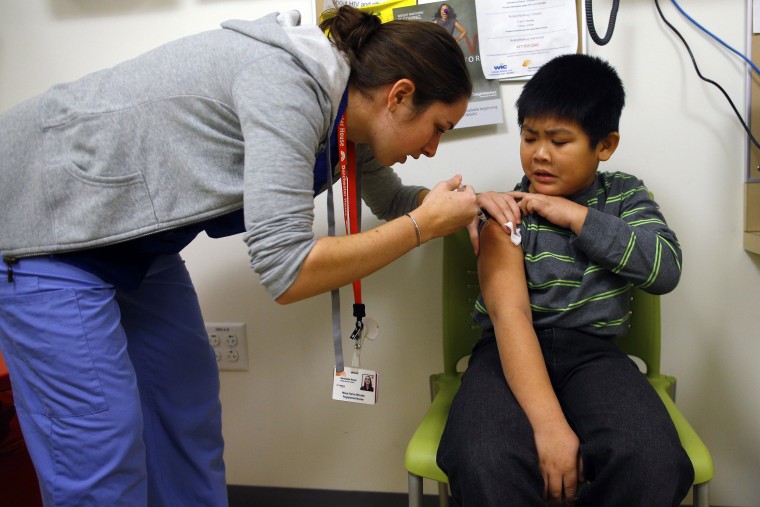First the good news. The automatic cuts set to ravage the federal budget this week are not completely random. While negotiating the bipartisan suicide pact in 2011, Democrats managed to shield certain parts of the social safety net. Medicaid and CHIP (the Children’s Health Insurance Program) are exempt from the indiscriminate cuts that kick in on March 1. And though Medicare will lose 2% of its revenues―some $11 billion this year alone―the nation’s bloated defense budget will shrink at six times that rate. Still, the sequester could have devastating health effects here and around the world. How will it hurt people? Here are just a few of the ways:
Global Health. Sequestration will trigger $2.6 billion in annual cuts to the State Department and USAID, eliminating $600 million in humanitarian assistance and global health programs. These are piddling amounts by domestic standards, but the impact could be devastating because the affected programs provide lifesaving assistance to people already battered by war, famine and disease. The cuts will “gravely [impede] our efforts to create an AIDS-free generation and to end preventable child deaths,” Secretary of State John Kerry wrote in a Feb. 11 letter detailing the likely effects. The international ONE Campaign estimates that the cuts to global HIV/AIDS programs could force 170,000 people off of their AIDS medications this year, causing 37,000 rapid deaths in poor countries and orphaning 74,000 children. For more on what’s at stake worldwide, see the Global Health Technologies Coalition’s 2013 policy report.
Domestic Public Health. The sequestration deal leaves the Affordable Care Act largely intact, but public health programs will lose about 8% of their federal support―some $2.4 billion this fiscal year―and the fallout will be painful. An estimated 600,000 to 775,000 impoverished women and children will lose nutrition assistance through the federal WIC program, and 212,000 under-insured children and adults will lose needed immunizations. In addition, 34,000 middle-age women will lose federally sponsored screening tests for breast and cervical cancer, and states will lose $50 million in maternal and child health block grants, triggering service cuts to 5 million low-income families. The sequester will also weaken HIV prevention, eliminating 424,000 federally funded HIV tests and pushing 7,400 low-income Americans onto waiting lists for treatment. Between the sequester and other recent cuts, the nation’s public-health budget has been slashed by 16% since 2010.
Food Safety. The nation’s food-safety bulwark is already failing by crucial measures. Contaminated food sickens 48 million Americans each year, at a cost of $77 billion―and a recent report from the U.S. Public Interest Research Group suggests the problem is getting worse. By cutting the FDA's budget by 8%, the sequester will force the agency to cancel about 2,100 inspections of food manufacturing facilities this year. The likely result: Health and Human Services Secretary Kathleen Sebelius tells the Senate Appropriations Committee we can expect “more foodborne illness such as the recent salmonella-in-peanut-butter outbreak and the E. coli illnesses linked to organic spinach.” Buyer beware.
Mental Health. Under the sequester, 373,000 children and adults with serious mental illness will lose services that help prevent hospitalization and homelessness. In addition, HHS estimates that 200,000 Americans will lose access to substance-abuse treatment and that 8,900 mentally ill homeless people will be cut off from outreach programs that provide shelter and treatment.
Medicare. The program will surely survive a 2% cut, but the sequester follows a decade-long decline in reimbursement for Medicare services. The real cost of caring for patients has shot up by 25% since 2001, but Medicare’s reimbursement rates have stayed nearly flat. A less ham-fisted approach to cost-cutting would improve quality and efficiency while rooting out fraud and waste. But as Sebelius notes, the sequester will actually weaken the government’s Health Care Fraud and Abuse Control program. In 2011, the program recovered $4.1 billion in fraudulent payments―earning the taxpayers$7 for every dollar invested. This week, the program gets slashed along with the rest of the budget.
